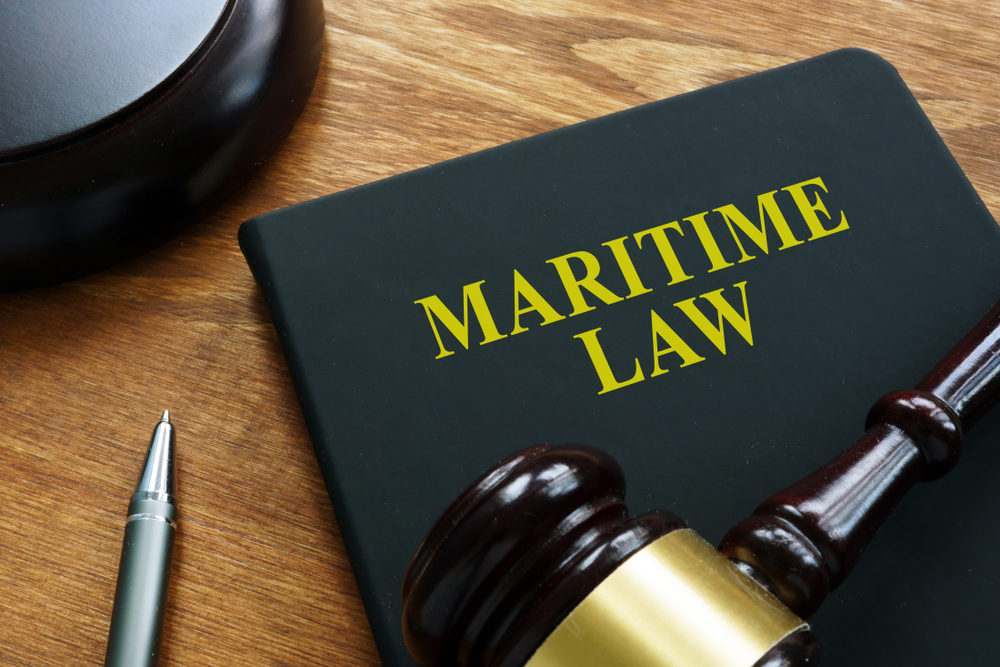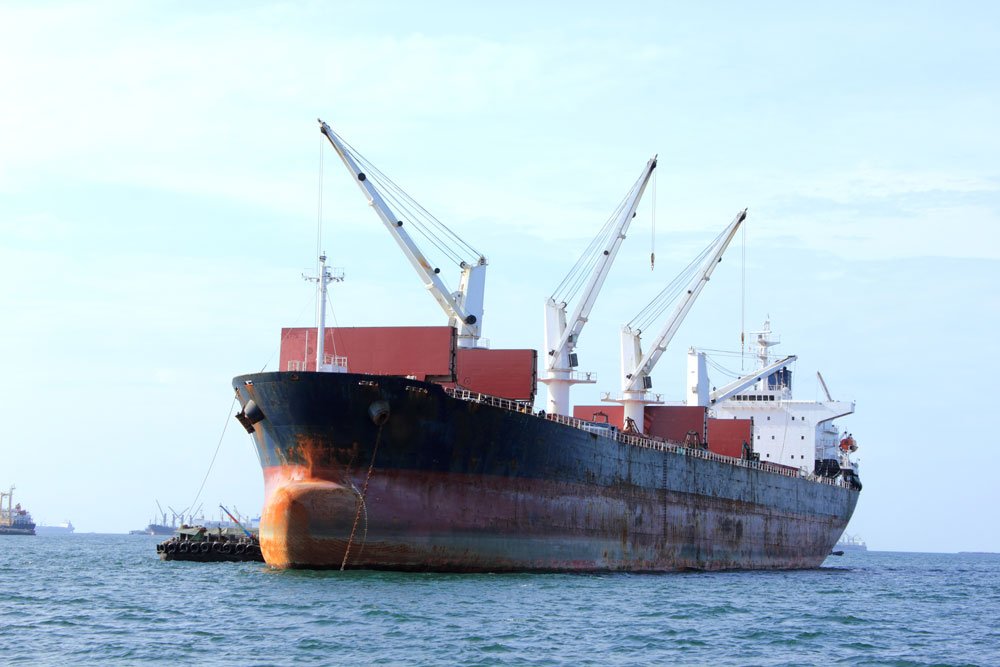Proving Experienced Legal Services to Offshore Workers in New Orleans
 The Jones Act, more formally known as the Merchant Marine Act of 1920, provides crew members aboard offshore vessels with certain legal rights designed to protect their health and welfare in the face of many potentially dangerous conditions.
The Jones Act, more formally known as the Merchant Marine Act of 1920, provides crew members aboard offshore vessels with certain legal rights designed to protect their health and welfare in the face of many potentially dangerous conditions.
The Jones Act allows crew members to file a lawsuit against their offshore employer when their fellow crew member’s or the offshore employer’s negligence caused their injuries.
Am I A Seaman?
Crewmembers aboard vessels are often referred to as seaman for purposes of the Jones Act. In order to seek compensation under the Jones Act as a result of an offshore accident, you must first establish that you are a seaman. Not every worker injured onboard a vessel is a seaman. In order to be considered a seaman, you must generally meet three important requirements:
You must be onboard a vessel in navigation at the time of your injury. A vessel does not necessarily have to be moving to be considered to be in navigation.
You must have an employment relationship to the vessel in navigation that is substantial in both nature and duration.
You must contribute to the purpose of the vessel on which you are employed.
It is very important that you contact a highly skilled offshore injury legal team immediately after an accident. Many courts have issued rulings on what types of workers constitute seaman for purposes of the Jones Act. A good New Orleans Jones Act lawyer will need sufficient time to investigate your particular case and research applicable cases to determine whether you are a Jones Act seaman.
Was I Working Aboard A Vessel?
We may think that a vessel is an easily understood term that basically refers to a boat. However, courts in various parts of the country have wrestled with how best to properly classify certain types of structures positioned offshore. Many seamen now work aboard vessels that are not merely boats in the traditional sense. Jack up and semisubmersible rigs are just a couple of the unique vessels that courts have had to wrestle with how best to classify over the years. It is important to hire a good New Orleans Jones Act attorney to investigate your particular case so as to determine whether you were working onboard a vessel when the accident occurred.
Responsibilities Of An Offshore Employer.
Over the years courts have detailed several responsibilities that an offshore employer owes a seaman. If you suffered an offshore injury as a result of your employer’s failure to fulfill one of these responsibilities you may have a valid Jones Act claim.
An offshore employer must provide offshore workers with a reasonably safe workplace. An employer must supervise and instruct offshore workers about safe work methods by which they are to carry out the orders given to them. The maritime employer must provide adequate and proper equipment. The captain of an offshore vessel owes his crew a paternalistic duty to protect them. While an offshore worker does have a duty to protect himself from injury, that duty is slight. An offshore worker is not required to find the safest way to accomplish the task that he was ordered to perform.
An employer is responsible to the injured offshore worker if one or more of its employees engaged in conduct below the standard which the law applies to their activities in the course and scope of their employment. Generally, an offshore worker must act with the degree of care that we would reasonably expect from an ordinarily prudent person. In deciding whether the offshore employer’s substandard conduct caused or contributed to an offshore worker’s injury, a judge or jury will eventually ask the question: “Did the employer’s substandard conduct play a part – no matter how small – in bringing about the offshore worker’s injury?”
An injured offshore worker’s burden of proof at trial is featherweight. In other words, the injured offshore worker is entitled to recover damages against his employer if he simply proves that the employer’s negligence played any part, however small, in bringing about his injury.
What Should I Do Immediately After An Offshore Accident?
When a serious accident occurs offshore, most offshore employers begin investigating the accident immediately. Oftentimes, an army of New Orleans Jones Act lawyers starts working on a particular case for your employer following an offshore accident before the injured workers ever file a claim. Given this reality, it is important for you to take some important steps to properly document your Jones Act claim.
If you are hurt or in pain, stop working immediately. Do not try and tough out your injury. If you continue to work after you are hurt, you could aggravate the injury.
Report your offshore injury to your supervisor immediately. Make sure that your supervisor follows the proper protocol by filling out an accident report.
Request the medical attention you are entitled to as soon as possible. You are not required to see your company’s doctor. Company doctors are paid by your employers. These doctors do not always have your best interest in mind as they are examining you.
Take photographs of the accident scene and any other conditions on the vessel that caused your injury.
Talk to potential witnesses and get all of their home contact information including cell phone numbers and addresses. Once you are taken off of the vessel, depending upon the severity of your injury, you may never return to that vessel or that crew again.
Do not sign anything until you have had an opportunity to consult with an experienced New Orleans Jones Act attorney.
How Long Do I Have To File A Jones Act Lawsuit?
Generally, an offshore worker has three (3) years from the date of their injury to file suit against their employer under the Jones Act. However, if you were working aboard a vessel owned by, operated by, or under contract to the U.S. government you may have a shorter period of time to file your lawsuit.
If you have been seriously injured offshore, you should contact a New Orleans Jones Act lawyer immediately. Do not expect your employer to offer you assistance. Your employer may offer you the bear minimum in terms of compensation while you are entitled to much more under the Jones Act. Do not delay contacting a New Orleans Jones Act attorney because your employer promises to take care of you. Three years may seem like a long time. However, the truth is that it is rarely a good idea to wait to file. The sooner you file, the sooner you can receive the compensation you deserve.
Maintenance and Cure
Many injured offshore workers are concerned about how they will support their families after a serious accident. Under the Jones Act, seamen are entitled to specific benefits if they are injured while working aboard their vessel. These benefits are commonly called “maintenance and cure.” A seaman is entitled to “maintenance and cure” even if they were injured in an accident that was their own fault. Offshore employers face stiff penalties imposed by the courts if they fail to timely pay these mandatory benefits when an offshore worker is injured.
“Maintenance” is the money paid to a seaman for each day that he is unable to work because of an injury or illness. The daily amount is supposed to cover reasonable living expenses until the seaman is able to work However, you will likely be shocked by how low this number is in actuality.
“Cure” is the obligation of the offshore employer to pay all medical costs incurred as a result of your offshore injury. An offshore employer is obligated to pay these medical costs until you have reached maximum medical improvement (MMI). An injured seaman is considered to have reached MMI when a doctor concludes that further medical treatment will not improve the injured offshore worker’s condition.
If you or a family member has been seriously injured or killed as a result of an offshore accident, it is very important that you contact a highly skilled Louisiana Jones Act lawyer immediately. No firm is better equipped than HHK to handle your personal injury claim stemming from an offshore accident. Learn about your legal rights from an experienced Louisiana Jones Act attorney by calling 504-581-4892 or by filling out our free, no-obligation case review form.
Free Case Evaluation
More About HHK
Other Offshore-Maritime Accidents News
Offshore work is one of the most dangerous professions in […]
Offshore oil workers hold one of the most dangerous job […]
Offshore workers perform some of the most dangerous jobs in […]
At the gas pump, you’re probably focused on how much […]
Regardless of the type of job, offshore workers generally face […]
New Orleans, LA Maritime Injury Lawyer What you do (or […]







